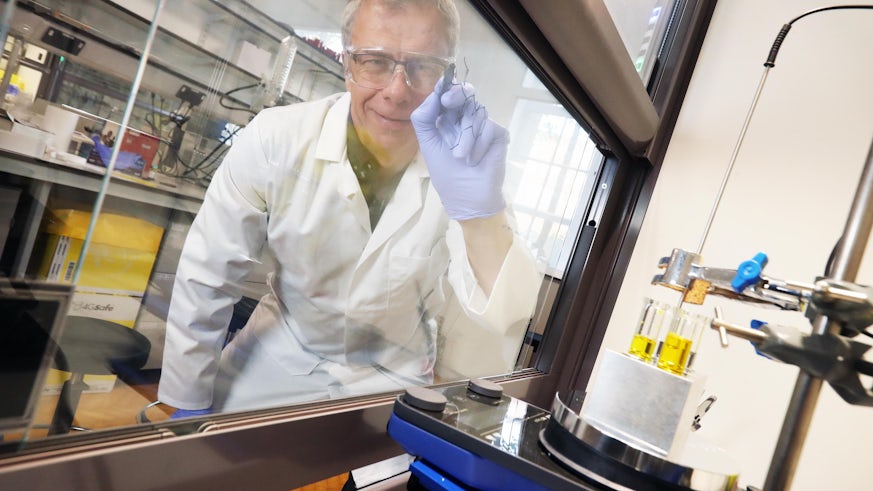New therapies for postpartum psychosis
28 September 2021

One in every five hundred mothers experience postpartum psychosis after giving birth, a serious mental health condition associated with hallucinations, low mood, manic mood or delusions. A new project at Cardiff University aims to find new therapies.
The Medicines Discovery Institute has launched its new research project investigating new therapies for this mental health condition, focusing on novel drug that targets a type of GABA receptor.
Current treatment options for postpartum psychosis are linked with strong side effects and an improved therapy would have a dramatic impact on those with the condition.
Professor John Atack, Cardiff University’s Medicines Discovery Institute, said: “While many new mothers experience the so-called baby-blues, postpartum depression and postpartum psychosis represent serious, debilitating and potentially life-threatening mental health challenges.
“Despite the considerable unmet need, the development of novel therapeutic strategies in these areas has been very much neglected. However, that is set to change with our new project.”
The research project launched on September 27 and is funded by the Wellcome Trust. It aims to address the chemical imbalance within the brain which occurs after birth and is thought to be responsible for the development of postpartum psychosis.
“At the moment, treatment options include antipsychotics, mood stabilisers and potentially electroconvulsive therapy. These are all very powerful treatments, none of which was specifically developed for the treatment of postpartum psychosis.
“Our research aims to find a new way to target the GABA receptor. We believe that a drug originating from this project will treat postpartum psychosis much more efficiently and effectively than current approaches.
“We are delighted that the Wellcome Trust have recognised the clinical need and have agreed to fund our project in the hope that we can produce something that will deliver genuine patient impact,” said Professor Atack.